Links to external sources may no longer work as intended. The content may not represent the latest thinking in this area or the Society’s current position on the topic.
The Science of COVID
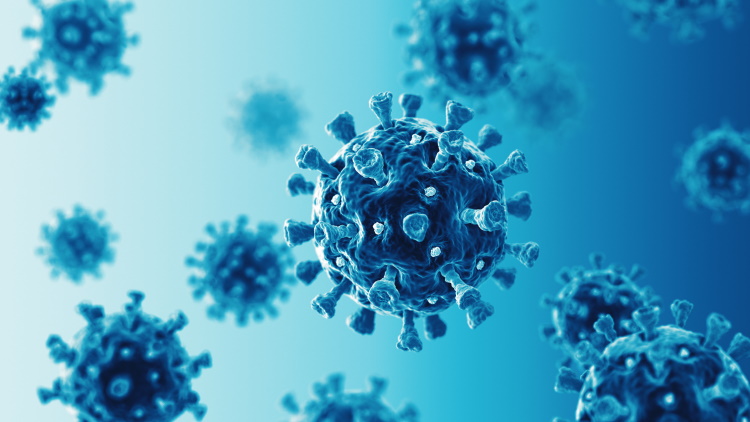
Over two days, this meeting explored the basic science, vaccine efforts and diagnostic logistics, treatment and recovery from long and acute COVID, as well as the opportunities gained for the life sciences, and how this can be taken forward for future preparedness.
This conference held by the Royal Society brought together leading experts from industry, academia, government and the wider scientific community at the forefront of the scientific pandemic response. The conference celebrated the exceptional efforts of scientists over the previous two years, demonstrating the importance of a strong and dynamic life science sector. The event highlighted the advances in cutting edge science and technology that have been made during the pandemic, and how systems have successfully adapted to the crisis. Speakers explored the positive ongoing impact of the pandemic response in many areas of the life science sector.
Read the conference report summarising the event (PDF).
The event programme is available online (PDF).
About the conference series
The conference is part of the Royal Society's Transforming our future conferences in the life sciences, supported by AstraZeneca. These meetings are unique, high-level events that address the scientific and technical challenges of the next decade. Each conference features cutting edge science from industry and academia and brings together leading experts from the scientific community, including regulatory, charity and funding bodies.
Organisers
Schedule
| 08:00 - 08:05 |
Opening remarks
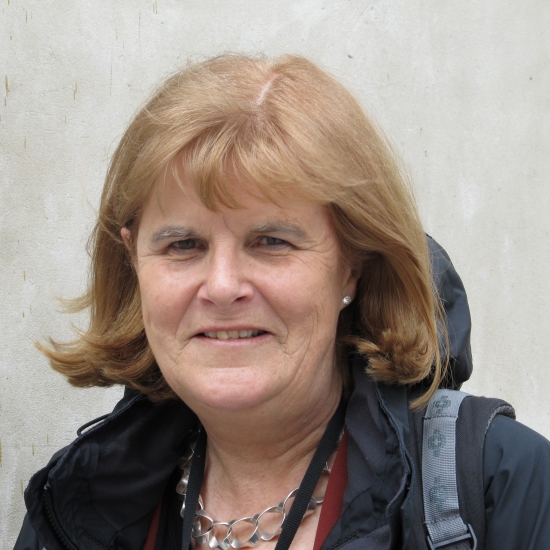
Professor Dame Linda Partridge FMedSci FRS, Director, Institute of Healthy Ageing, University College London

Professor Dame Linda Partridge FMedSci FRS, Director, Institute of Healthy Ageing, University College LondonLinda Partridge works on the biology of ageing. Her research is directed to understanding the mechanisms by which healthy lifespan can be extended in laboratory model organisms and humans. Her work has focused in particular on the role of nutrient-sensing pathways, such as the insulin/insulin-like growth factor signalling pathway, and on the role of diet. She is the recipient of numerous awards, including the Royal Society's Croonian Prize Lecture, and was honoured with a DBE for Services to Science in 2009. She is a Fellow of the Royal Society, the Academy of Medical Sciences and a foreign member of the American Academy of Arts and Sciences. She is Director of the Institute of Healthy Ageing at UCL and the founding director of the Max Planck Institute for Biology of Ageing in Cologne, Germany. |
|---|
Chair

Professor Dame Linda Partridge FMedSci FRS, Director, Institute of Healthy Ageing, University College London

Professor Dame Linda Partridge FMedSci FRS, Director, Institute of Healthy Ageing, University College London
Linda Partridge works on the biology of ageing. Her research is directed to understanding the mechanisms by which healthy lifespan can be extended in laboratory model organisms and humans. Her work has focused in particular on the role of nutrient-sensing pathways, such as the insulin/insulin-like growth factor signalling pathway, and on the role of diet.
She is the recipient of numerous awards, including the Royal Society's Croonian Prize Lecture, and was honoured with a DBE for Services to Science in 2009. She is a Fellow of the Royal Society, the Academy of Medical Sciences and a foreign member of the American Academy of Arts and Sciences. She is Director of the Institute of Healthy Ageing at UCL and the founding director of the Max Planck Institute for Biology of Ageing in Cologne, Germany.
| 08:05 - 08:40 |
Overview of the pandemic and the science

Sir John Irving Bell GBE FMedSci FREng FRS

Sir John Irving Bell GBE FMedSci FREng FRSProfessor Sir John Bell GBE FRS is Regius Professor of Medicine at Oxford University. He served as President of the Academy of Medical Sciences from 2006 to 2011 and chaired the Office for the Strategic Coordination of Health Research until 2017. As a Rhodes Scholar (1975-78), Sir John undertook his medical training in the UK and then went on to Stanford University, returning to the UK in 1987. His research interests are in the area of autoimmune disease and immunology where he has contributed to the understanding of immune activation in a range of autoimmune diseases. In 1993, he founded the Wellcome Trust Centre for Human Genetics, one of the world’s leading centres for complex trait common disease genetics. In 2001, he was appointed non-executive director of Roche Holding AG and in 2008 he joined the Gates Foundation Global Health Advisory Board which he has chaired since 2012. In December 2011, Sir John was appointed one of two UK Life Sciences Champions by the Prime Minister. He sits on the board of Genomics England Limited and chairs its Science Advisory Committee. He was appointed Knight Grand Cross of the Order of the British Empire (GBE) in the 2015 New Year Honours for services to medicine, medical research and the life science industry. In August 2017, the UK Life Sciences Industrial Strategy, written by Sir John, was published. The report, written in collaboration with industry, academia, charity, and research organisations, provides recommendations to HM Government on the long-term success of the life sciences sector. |
|---|---|
| 08:40 - 09:15 |
Sensing Pandemics: Pathogens, People, Places and Possibilities
In this presentation I will explore patterns of disease and seek to explain why the pandemic appeared to wax and wane at different times in various parts of the world. I will propose principles and steps that could be applied for mitigation in future. 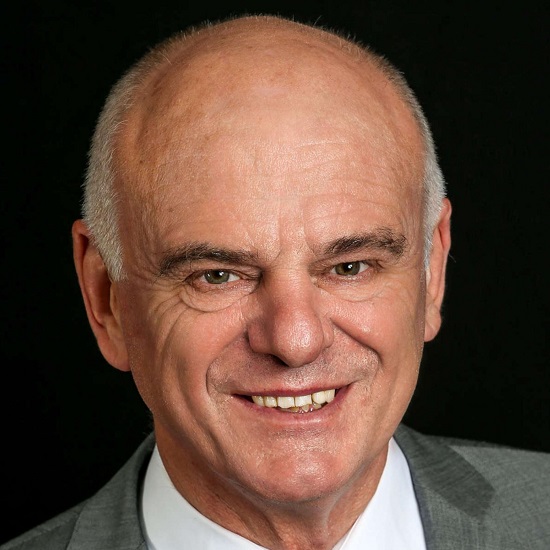
Professor David Nabarro, Imperial Institute of Global Health Innovation and Special Envoy of WHO Director-General on COVID-19

Professor David Nabarro, Imperial Institute of Global Health Innovation and Special Envoy of WHO Director-General on COVID-19David Nabarro is Chair of Global Health at Imperial College London and teaches living systems leadership through the social enterprise 4SD. He supports WHO on COVID-19 responses and is Senior Advisor to the United Nations on Food Systems. He worked in the UN System between 1999 and 2017 with responsibilities for food security and nutrition, the Sustainable Development Agenda, Climate Action, as well as responses to Ebola Virus Disease and preparedness for Influenza Pandemics. |
| 09:15 - 09:45 |
Combating the Pandemic: How a novel approach helps combat the COVID-19 pandemic
With almost six million suspected deaths worldwide and counting, the ongoing COVID-19 pandemic has been one of the deadliest disasters in human history. Once its global spread and destructive force became clear at the beginning of 2020, scientists around the world raced to develop a vaccine to stop the novel virus in its tracks and save millions of lives. Özlem Türeci, Co-Founder and Chief Medical Officer of BioNTech, is a physician, immunologist, and cancer researcher with translational and clinical experience. Türeci has led the discovery of cancer antigens, the advancement of mRNA-based individualized and off-the-shelf vaccine candidates and other types of immunotherapies which are currently in clinical development. Along with her team at BioNTech, she developed one of the first mRNA-vaccines for effectively preventing COVID-19 infections and will share how to translate science into industrial production and how to turn these innovations into medication by showing how her team made the “mRNA Toolbox” ready for use in industry and the market. 
Professor Özlem Türeci, BioNTech

Professor Özlem Türeci, BioNTechProf. Özlem Türeci, M.D., Co-Founder and Chief Medical Officer of BioNTech, is a physician, immunologist, and cancer researcher with translational and clinical experience. Türeci has helped lead the discovery of cancer antigens, the development of mRNA-based individualized and off-the-shelf vaccine candidates and other types of immunotherapies which are currently in clinical development. Türeci leads the clinical development of BioNTech’s “Project Lightspeed,” the company’s successful effort to develop and distribute an mRNA-based vaccine against COVID-19, a historic achievement completed in less than one year. Türeci previously served as CEO and Chief Medical Officer of Ganymed Pharmaceuticals AG, which she co-founded with Ugur Sahin and Christoph Huber. The company was acquired by Astellas in 2016. She is also a professor for Personalized Immunotherapy at the University Medical Center Mainz and the Helmholtz Institute for Translational Oncology Mainz (HI-TRON) and currently serves as President of the Association for Cancer Immunotherapy (CIMT) in Germany. She is a recent recipient of the German Sustainability Award, among other notable recognitions. Türeci is married to Prof. Ugur Sahin. |
Chair
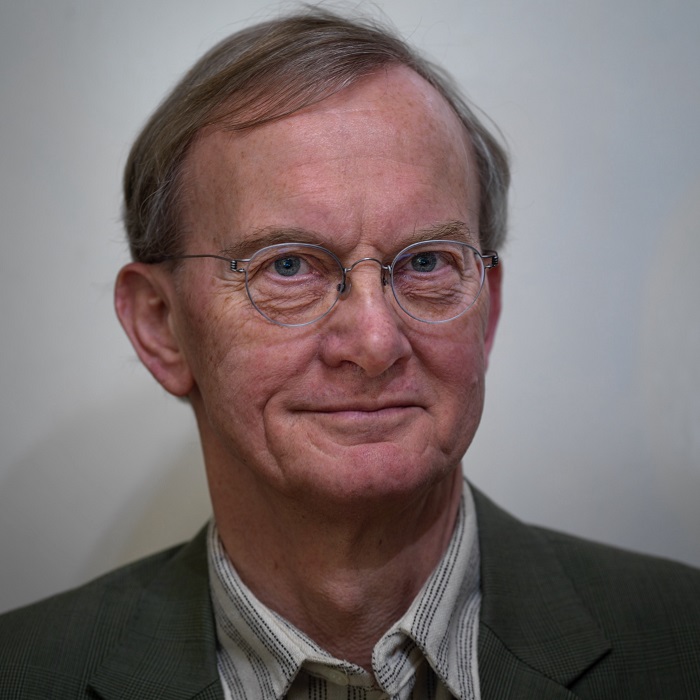
Professor Charles Bangham FMedSci FRS, Co-Director of the Institute of Infection, Imperial College London

Professor Charles Bangham FMedSci FRS, Co-Director of the Institute of Infection, Imperial College London
Charles Bangham qualified in medical sciences at the University of Cambridge and in clinical medicine at the University of Oxford. He worked as a hospital physician for three years, followed by a PhD in viral immunology at the MRC National Institute for Medical Research and the University of Oxford. In 1995 he was appointed to the Chair of Immunology in Imperial College. He is founder and Co-Director of the Institute of Infection in Imperial College. His research is on the immunology and virology of persistent viral infections, especially the human retrovirus HTLV-1. Charles is a Wellcome Trust Investigator, Fellow of the Academy of Medical Sciences, and Fellow of the Royal Society.
| 10:15 - 10:40 |
The origin and ongoing evolution of COVID-19
I will outline our current understanding of the key events in the origin and emergence of COVID-19 (SARS-CoV-2) at the end of 2019. Major topics of discussion will be possible zoonotic reservoirs for SARS-CoV-2, the diversity of SARS-CoV-2-like viruses in bats and other mammals, the signatures of origin written into genome sequences, and the possible role played by the Huanan market in Wuhan in the initial animal-to-human cross-species transmission event. I will show that there is increasing evidence that the emergence of SARS-CoV-2 strongly resembles of that of SARS-CoV some 17 years earlier. I will also address whether it is possible that SARS-CoV-2 emerged as a result of ‘lab leak’ from the Wuhan Institute of Virology and show that there is currently no scientifically robust evidence in support of that theory. I will also briefly consider possible scenarios for the future evolution of SARS-CoV-2 and conclude by considering the steps that can be taken to stop such a catastrophic pandemic event ever happening again. 
Professor Edward Holmes FRS, University of Sydney, Australia

Professor Edward Holmes FRS, University of Sydney, AustraliaEddie Holmes is an ARC Australian Laurate Fellow and Professor at the University of Sydney. Prior to that it was an NHMRC Australia Fellow at the University of Sydney, which he joined in 2012. Eddie received his undergraduate degree from the University of London (1986) and his Ph.D. from the University of Cambridge (1990). Between 1993-2004 he held various positions at the University of Oxford, including University Lecturer in Evolutionary Biology and Fellow of New College. He was elected a Fellow of the Australian Academy of Science (FAA) in 2015 and of the Royal Society (FRS) in 2017. In 2017 he won the New South Wales Premier’s Prize for Science and Engineering – Biological Sciences and in 2020 he won the overall New South Wales Premier’s Prize for Science and Engineering. In 2021 he received the Prime Minister’s Prize for Science. |
|---|---|
| 10:40 - 11:05 |
SARS-CoV-2 Variants. Evolution in real time.
Since its emergence in late 2019 as a novel coronavirus that can infect and transmit amongst humans, SARS-CoV-2 has continued to circulate, causing respiratory infections around the world. Although in the first months the virus appeared to be relatively evolutionarily static, subsequent waves of the pandemic during the following 2 years have been attributed to variants, that presumably represent stages of further adaptation to the new human host. The SARS-CoV-2 variants now represent a natural set of similar viruses with well described genetic features that determine different phenotypes including increased transmissibility, altered severity, and antigenic escape. By performing careful comparative virology combined with reverse genetics, we aim to understand the molecular basis of altered phenotype in order to better risk assess novel variants as they emerge. A key question is whether further human adaptation, including altered cell tropism, increased airborne transmission and antigenic escape result in reduced severity for newly emergent variants such as Omicron, and whether these changes are intrinsically linked or can evolve separately. Understanding the genetic relationships between these key traits will help assess the possibility that further severe variants that escape current vaccines might emerge. 
Professor Wendy Barclay, Imperial College London

Professor Wendy Barclay, Imperial College LondonCurrent position: Action Medical Research Chair in Virology, Imperial College London. After graduating from Cambridge University, Wendy’s postgraduate study was conducted at the Common Cold Unit in Salisbury. Following postdoctoral appointments at the University of Reading and then Mount Sinai Medical Centre in New York, she returned to the UK and set up her research group to study influenza viruses. In May 2007 she moved to Imperial College London where she is now the Head of Department of Infectious Disease. Her research has been focussed on the mechanisms by which viruses can cross from animal sources into humans to cause new pandemics, and strategies to prevent and control pandemic emergence. During the COVID pandemic Wendy has been a member of SAGE, advising the UK government around the science of the newly emerged virus. She was awarded a CBE for services to virology in the New Years Honours list 2022. |
| 11:05 - 11:30 |
Immune responses in COVID-19 and other coronavirus infections
As we have learned during the course of the COVID-19 pandemic, the human immune response to SARS-CoV-2 has both pathogenic and protective aspects. The pandemic has been characterized by severe disease in a subset of infected individuals, many of whom have co-morbidities. Many COVID-19 studies have indicated a major role for a dysregulated host immune response in this severe disease. Specifically, virus clearance and interferon responses are often delayed in patients with worse outcomes, and interferon and pro-inflammatory cytokine levels are elevated at later times. Some patients with severe disease develop poor interferon and T cell responses, which also contribute to severe disease. On the other hand, well-orchestrated innate and adaptive immune responses are critical for virus clearance and recovery from COVID-19. Most of these latter studies have focused on anti-virus antibody responses after the natural infection or vaccination. The anti-virus T cell response is also important but is less well characterized. Many of these observations were previously made in the context of severe infections caused by SARS-CoV or the MERS (Middle East respiratory syndrome)-coronavirus and in laboratory animals infected with human or other coronaviruses. Here, we focus on the host response to SARS-CoV-2 and to other human and animal coronaviruses, with particular focus on common aspects of immunopathogenesis and protective immune responses. 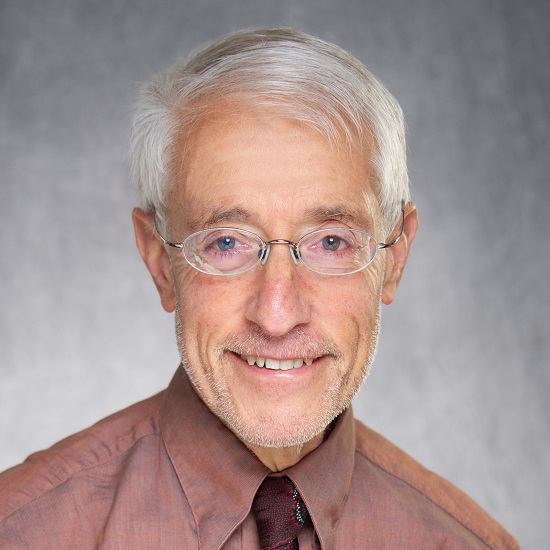
Professor Stanley Perlman, University of Iowa

Professor Stanley Perlman, University of IowaDr. Perlman received his Ph.D. in Biophysics from M.I.T., Cambridge, Massachusetts and his M.D. from the University of Miami, Miami, Florida. He was trained in Pediatrics and Pediatric Infectious Diseases at Boston Children’s Hospital, Boston, Massachusetts. He is a member of the VRBPAC of the FDA and the COVID-19 Advisory Committee of the ACIP (Advisory Committee on Immunization Practices). His current research efforts are focused on coronavirus pathogenesis, including virus-induced demyelination and the Severe Acute Respiratory Syndrome (SARS), the Middle East Respiratory Syndrome (MERS) and COVID-19. His laboratory has developed several novel animal models useful for studying pathogenesis and evaluating vaccines and anti-viral therapies. His studies are directed at understanding why aged patients and mice developed more severe disease than younger individuals after infection with SARS-CoV or SARS-CoV-2 and also on why there is a male predominance in patients with more severe disease after infection with SARS-CoV, MERS-CoV or SARS-CoV-2. He and his colleagues demonstrated that transduction of mice with an adenovirus expressing the human receptor for MERS-CoV, DPP4, rendered them sensitive to infection, providing the first rodent model useful for studying MERS. Similar approaches have been used to develop several mouse models for COVID-19. Among other topics, his research is now focusing on the loss of sense of smell (anosmia) and taste (ageusia) observed in patients with COVID-19. |
Chair

Steve Bates OBE, CEO, BioIndustry Association

Steve Bates OBE, CEO, BioIndustry Association
Since his appointment as CEO of the BioIndustry Association (BIA) in 2012, Steve has led major BIA campaigns for improved access to finance, the refilling of the Biomedical Catalyst, anti-microbial resistance and the opportunity the sector presents to generalist long term investors. Steve champions the adaptive pathway approach to the licensing of new drugs, the need for Early Access and is particularly proud of the working relationship the BIA has established with the UK’s leading medical research charities.
Steve is a founder member of United Life Sciences, attends the UK’s Ministerial Industry Strategy Group, and sits on the Royal Society's Science, Industry & Translation Committee. Beyond the UK Steve is a member of EuropaBio’s Board and its National Association Council, and is a founder member and Vice-Chair of the International Council of Biotech Associations. An expert and regular commentator on the sector in the media and at industry-leading conferences, Steve has worked both in biotech and at the highest levels of UK government for over 15 years.
In the 2016 New Year’s Honours List Steve was awarded an OBE for his services to innovation.
| 12:30 - 12:50 |
Lessons learnt from the Vaccine Task Force
Kate will discuss the steps and challenges facing the VTF during 2020 and suggest how lessons can be learnt for managing future pandemics. She will also touch on exciting new opportunities post the pandemic. 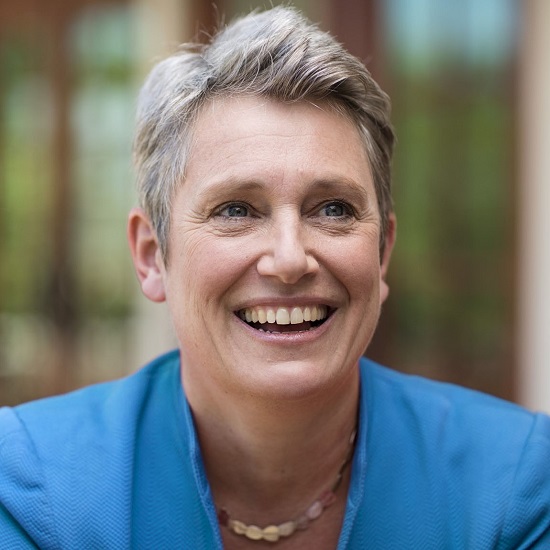
Dame Kate Bingham, SV Health Investors

Dame Kate Bingham, SV Health InvestorsKate Bingham is Managing Partner at SV Health Investors and a board member of the Francis Crick Institute, and has worked in the biotech and life sciences sectors for 30 years. Her investments have led to the launch of six drugs for the treatment of patients with inflammatory and autoimmune disease and cancer. In May 2020, Kate was appointed Chair of the UK Vaccine Taskforce reporting to the Prime Minster to lead UK efforts to find and manufacture a COVID-19 vaccine on a six-month engagement, stepping down as Chair in December 2020. On December 8 2020 the UK started COVID-19 vaccinations - the first Western country to do so. The Vaccine Taskforce helped place the UK at the leading edge of the international effort to fight the pandemic through the development of clinically safe and effective vaccines. As Chair of the Vaccine Taskforce in 2020 she led a team of world-class experts from across industry, science, academia, funding, regulators, logistics and government with the shared purpose of procuring and manufacturing COVID-19 vaccine/s as rapidly as possible. |
|---|---|
| 12:50 - 13:10 |
Development and testing of the Oxford-AstraZeneca vaccine: a vaccine for the world
In early January 2020 the genomic sequence of SARS-Cov2 was shared around the world providing the raw data needed to start making a vaccine, before anyone realised that we were on the verge of a pandemic. Over the next couple of months, intense activity allowed the critical steps in manufacturing and animal testing to be completed so that pivotal clinical trials could be initiated on 23rd April at unprecedented scale and speed. Initial trials showed the Oxford vaccine, using the Chadox1 non-replicating viral vector platform with a spike protein transgene, induced strong antibody and T cell responses across all ages, paving the way for phase III trials. Just over a month later, with a herculean effort, researchers in the NHS, South Africa and Brazil ran trials of over 24,000 volunteers to demonstrate the safety and efficacy of the vaccine. A partnership with AstraZeneca provided the human resources to stitch together global regulatory approvals and enable global manufacturing to produce the vaccine for the world, not-for-profit. Licensure in the UK at the end of December 2020, just 8 months after the first dose was given in clinical trials was followed by roll out in the UK from the 4th January, and following approvals by WHO in February 2021, the vaccine provided the main supply to Covax during the first half of 2021. Since then studies have established the profound impact of the vaccine in preventing severe disease, and saving lives, and confirmed its global role as a booster vaccine. There are many lessons to learn from the pandemic but most important is that the research on coronavirus vaccines that happened before the pandemic made it possible to respond in the pandemic. It could so easily have been different. 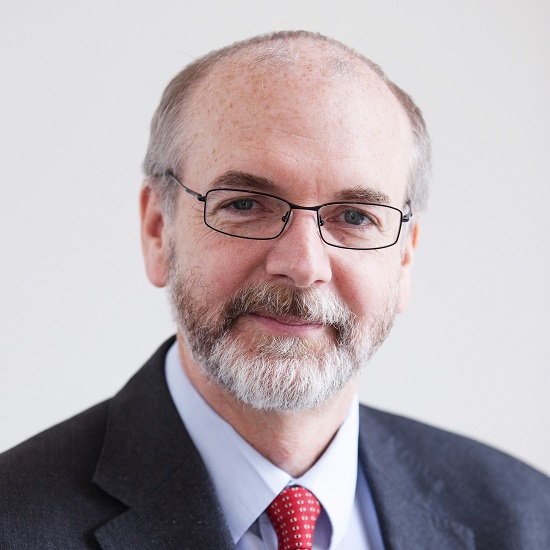
Professor Sir Andrew Pollard FMedSci, Oxford Vaccine Group, University of Oxford

Professor Sir Andrew Pollard FMedSci, Oxford Vaccine Group, University of OxfordProfessor Pollard is Director of the Oxford Vaccine Group in the Department of Paediatrics at the University of Oxford and an honorary consultant paediatrician (infectious disease and immunology) at Oxford Children’s Hospital. He received a knighthood in the Queen’s Birthday Honours in 2021 for services to Public Health. His research includes the design, development and clinical evaluation of vaccines including those for typhoid, meningococcus, Haemophilus influenzae type b, pneumococcus, plague, pertussis, influenza, rabies, coronavirus and Ebola. His work on typhoid supported the WHO prequalification of a new typhoid conjugate vaccine and WHO recommendations for its use in countries with a high burden of disease. He was the chief investigator for the clinical trials of the Oxford-AstraZeneca vaccine in 2020 in 24,000 participants in UK, South Africa and Brazil, which led to authorisation of the vaccine for use in more than 180 countries with over 2.5 billion doses distributed by 2022. He has supervised 37 PhD students and his publications includes over 500 manuscripts and books on various topics in paediatrics and infectious diseases. He chairs the UK Department of Health and Social Care’s Joint Committee on Vaccination and Immunisation, was a member of WHO’s Strategic Advisory Group of Experts (2016-2022). He chaired the European Medicines Agency scientific advisory group on vaccines (2012–2020). He received the Bill Marshall Award of the European Society for Paediatric Infectious Disease (ESPID) in 2013, the ESPID Distinguished Award for Education and Communication in 2015 and the Rosén von Rosenstein medal in 2019 awarded by the Swedish Paediatric Society and the Swedish Society of Medicine. He was elected to the Academy of Medical Sciences in 2016 and is an NIHR Senior Investigator. |
| 13:10 - 13:35 |
Navigating a global response to the pandemic to develop a vaccine made for the world
Dr Tonya Villafana, Global Franchise Head, Vaccines and Immune Therapies The COVID-19 pandemic has demanded a global, united response, not just from the scientific community but also from industry, organisations, governments and every single person around the globe. Since early 2020 when the true scale of the crisis became clear, AstraZeneca has committed to help defeat COVID-19 by harnessing and sharing our scientific knowledge and expertise to advance and accelerate the development of potential medicines to prevent or treat the virus. Recognising the urgent need for a vaccine to defeat the virus, we joined forces with the University of Oxford, bringing together its world-class expertise in vaccinology with our global development and manufacturing capabilities. We accelerated clinical development and rapidly mobilised partnerships and a global supply chain that has supported a broad, timely and equitable supply of a safe and effective vaccine around the world, and at no profit during the pandemic. So far, AstraZeneca together with its partners has delivered more than 2.5 billion vaccine doses to over 170 countries across every continent, with approximately two-thirds of these doses have been delivered to low- and lower-middle income countries. 
Dr Tonya Villafana, AstraZeneca

Dr Tonya Villafana, AstraZenecaDr. Tonya Villafana has dedicated her career to developing vaccines and medicines against some of the most difficult infectious diseases and sought to improve global health through significant contributions spanning the public, non-governmental and private sectors. In her current role as Vice President, Global Franchise Head, Vaccine & Immune Therapies at AstraZeneca, Dr. Villafana has led the accelerated late-stage development of Vaxzevria (COVID-19 Vaccine AstraZeneca), working closely with the University of Oxford, health authorities, the US government, US National Institutes of Health and COVAX (a partnership between CEPI, Gavi, WHO and UNICEF), to enable broad and equitable access to the vaccine around the world. This complex development program has enabled supply of more than 2.6 billion doses in more than 180 countries around the world in just 20 months. During her 13 years with AstraZeneca, Dr. Villafana has led late-stage development for a number of vaccine and monoclonal antibody infectious disease programs including nirsevimab, a novel monoclonal antibody for the prevention of RSV disease in all infants. From 2011-2013, she was seconded to the World Bank and served as the International Federation of Pharmaceutical Manufacturers and Associations (IFPMA) World Bank Fellow. In this role, Dr. Villafana supported the Global Medicines Regulatory Harmonization Initiative with a focus on strengthening regulatory systems in Africa and co-authored the Bank’s position on Non-Communicable Diseases for the 2011 UN High Level Meeting on NCDs. Prior to joining AstraZeneca, Dr. Villafana was Director of Portfolio Management at the PATH Malaria Vaccine Initiative (MVI), where she had oversight of MVI’s vaccine candidate portfolio. She served as Chair of MVI’s Portfolio Management Committee and was a member of the RTS malaria vaccine team (GSK’s Mosquirix, which received positive scientific opinion from the EMA), leading teams for PATH in Tanzania and Gabon. From 2001-2006 Tonya was the Site Director of the HIV Vaccine Initiative at the Botswana Harvard School of Public Health AIDS Initiative Partnership for HIV Research and Education in Gaborone, Botswana, where she established clinical sites to conduct the first HIV vaccine studies in the southern African nation, in collaboration with the US NIH HIV Vaccine Trials Network. While in Botswana, she served on the Botswana National HIV Vaccine Committee collaborating with local and international institutions including WHO, the Debswana Mining company and Botswana Police Service. Dr. Villafana has served on several important scientific committees and advisory boards including the Malaria Clinical Trials Alliance, International Society of Vaccines and the NIH Integrated Preclinical/Clinical Vaccine Development Program. She has worked closely on global health initiatives with the Bill and Melinda Gates Foundation, PAHO, WHO, IFPMA, and UK Development Agency for International Development. She was appointed a Fellow of the International Society of Vaccines in 2021. She received a PhD in immunology from Weill Cornell University Graduate School of Medical Sciences and an MPH from Harvard School of Public Health. Dr. Villafana is committed to developing novel vaccines and drugs to prevent diseases in the most vulnerable populations around the world. |
| 13:35 - 14:00 | Q&A Panel |
Chair
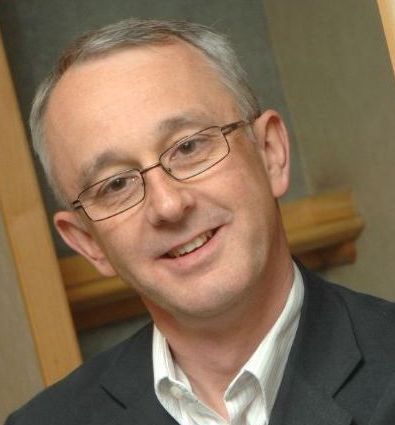
Steve Rees, VP Discovery Biology, Discovery Sciences, AstraZeneca

Steve Rees, VP Discovery Biology, Discovery Sciences, AstraZeneca
In March 2017 Steve was appointed as Vice-President of the Discovery Biology department at AstraZeneca with global accountability for protein and cellular reagent generation and assay development, functional genomics and chemical biology. Prior to this Steve led the Screening Sciences and Sample Management department and successfully implemented strategies for hit identification, compound profiling, sample management and open innovation. Steve has led multiple international collaborations and has authored >60 scientific papers. Steve is currently Chair of the European Laboratory Research and Innovation group (ELRIG), has served as Chair of the SLAS Europe Council, and is a member of the Scientific Advisory Board for Axol Biosciences, LifeArc and the Centre for Membrane Protein and Receptor research at the Universities of Nottingham and Birmingham.
| 14:30 - 14:55 |
The Team Science of Testing
The pandemic catalysed the largest diagnostics project in UK history and created the highest per capita testing capacity of any large country. The Lighthouse programme augmented NHS resources through a task-and-finish industrio-NHS-academic collaboration that delivered quality science at scale. The industry consortium on rapid testing delivered non-competitive collaborations that increased UK’s manufacturing capacity by one hundred-fold in 6 months. These rapid outcomes – at a time of massive uncertainty and scrutiny – showed the UK healthcare community’s mettle in passion, precision and productivity. It developed and used science in quality control, data analytics, new test development, materials application and manufacturing practice. It did this through the power of people with a purpose. Many of these benefits will flow into our own healthcare system for decades to come, and allow the UK to remain on the world stage as a next generation diagnostics innovator. 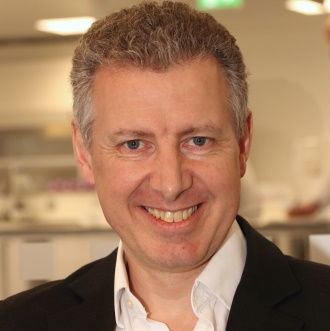
Professor Chris Molloy, CEO, Medicines Discovery Catapult

Professor Chris Molloy, CEO, Medicines Discovery CatapultChris Molloy has a 30-year international board and executive career across a unique range of life sciences R&D disciplines. His career began in preclinical research at Glaxo, where he was closely involved with the industrialisation of high throughput discovery. In 2004 he moved to Asia as COO of MerLion Pharmaceuticals, a Singaporean biotech that developed into an award-winning multinational anti-infectives R&D biotech. Chris then ran corporate development for the global informatics firm, idbs during which time it won a Queens Award for Enterprise, became a Fast-track 100 company, and the first UK firm to develop a stratified medicine software platform using real-world health data. Chris spent three years as CEO of the RSA Group, the global life science executive search specialist, before in 2016 becoming the founding CEO of the Medicines Discovery Catapult: the national centre for innovation in drug discovery. During its first five years the MDC has leveraged its Innovate UK grant by fourfold, worked with over 150 UK companies and assisted the discovery of UK drug assets worth over £1bn. During the pandemic Chris was the founding Director of the Lighthouse Labs - the largest diagnostics project in UK history - and chaired the industry-governmental consortium that increased UK lateral flow manufacturing capacity by twenty-fold. Chris is the non-executive chairman of Thriva – a pioneer in at-home diagnostics; Exploristics and NorthWest EHealth: two UK tech companies using Real World healthcare data to improve clinical development. He chairs the IP Advisory Committee for the Association of Medical Research Charities and the Industry Advisory Board for Manchester’s Biomedical Research Centre & Health Innovation Manchester. Chris is a Member of the Institute of Cancer Research and holds an honorary chair at the University of Manchester. |
|---|---|
| 14:55 - 15:20 |
Deriving actionable information from SARS-CoV-2 genomes
Since the beginning of the COVID-19 pandemic, genome sequencing has provided vital insights into the biology and evolution of the causal virus, SARS-CoV-2. Within a month of the first reported cases, genome data had informed the rapid development of vaccines and continues to inform vaccine redesign. Sequencing has detected the emergence and spread of Variants of Concern, and underpins studies of variant transmissibility, immune evasion, and disease severity. In this talk, I will describe how SARS-CoV-2 sequencing has led to numerous instances of public health action. 
Professor Sharon Peacock CBE FMedSci, Professor of Public Health and Microbiology, University of Cambridge; Director, COVID-19 Genomics UK Consortium (COG-UK)

Professor Sharon Peacock CBE FMedSci, Professor of Public Health and Microbiology, University of Cambridge; Director, COVID-19 Genomics UK Consortium (COG-UK)Sharon Peacock is currently Professor of Public Health and Microbiology at the University of Cambridge; Executive Director of the COVID-19 Genomics UK (COG-UK) consortium; and a Non-Executive Director on the board of Cambridge University Hospitals NHS Foundation Trust. She has raised around £60 million pounds in science funding, published more than 500 peer-reviewed papers, and has trained a generation of scientists in the UK and elsewhere. Sharon is a Fellow of the Academy of Medical Sciences, a Fellow of the American Academy of Microbiology, and an elected Member of the European Molecular Biology Organization (EMBO). In 2015, she received a CBE for services to medical microbiology, and in 2018 she won the Unilever Colworth Prize for her outstanding contribution to translational microbiology. Sharon was recently awarded the MRC Millennium Medal 2021. |
| 15:20 - 15:45 |
Learning from the pandemic on diagnostic testing for asymptomatic and early disease
AstraZeneca’s Precision Medicine capability uses innovative diagnostic tests to match medicines to patients most likely to respond. During the pandemic we deployed diagnostic testing for asymptomatic employees to maintain the supply of medicines to patients. This talk will describe key learnings from Sars-Cov-2 diagnostic testing that can be applied to asymptomatic disease and to the early detection of cancer. The combination of early detection and treatment in life threatening diseases could help to improve response rates and potentially lead to cure. 
Dr Ruth March, AstraZeneca

Dr Ruth March, AstraZenecaRuth March is an experienced Board member, senior industry leader and scientific investment advisor with experience in biopharmaceuticals, diagnostics, genomics and precision medicine. She combines deep scientific and technology expertise with board and committee experience in both private and public sectors. As Senior Vice President of Precision Medicine and Biosamples, she is accountable for development of novel companion and complementary diagnostics for AstraZeneca’s drug projects in all therapy areas and phases of drug development, leads more than 240 diagnostics and biosamples experts globally, and has successfully launched 48 diagnostic tests for five Precision Medicine drugs. Dr March has a proven record of driving innovation in Precision Medicine including the world’s first drug label based on circulating tumour DNA (Iressa); the first FDA approval of a lab-based companion diagnostic (gBRCA for Lynparza); the first diagnostic approval based on both ctDNA and tissue testing (Tagrisso); the first point of care diagnostic for respiratory disease (EDN). She has gained major investment for a world-leading pharmaceutical genomics initiative that is successfully discovering novel drug targets proceeding into the R&D pipeline. In the Covid-19 pandemic, she set up an end-to-end global programme to test AstraZeneca key employees by PCR, antigen and antibody methods in 3 major markets in 18 working days, keeping the workplace safe and maintaining the supply chain of critical medicines. This programme has now completed over 60,000 PCR assessments. Dr March is passionate about mentoring, diversity, early career researchers and innovation in life sciences, establishing important collaborations with institutions such as the University of Cambridge, FinnGen and the Wellcome Sanger Institute. |
| 15:45 - 16:10 |
Science into policy and practice for COVID-19
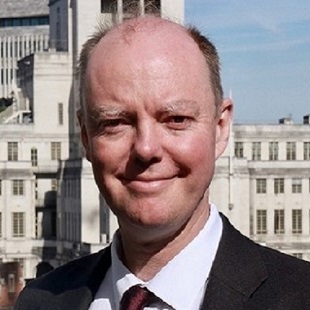
Professor Sir Chris Whitty, FMedSci

Professor Sir Chris Whitty, FMedSciProfessor Chris Whitty is Chief Medical Officer (CMO) for England, the UK government’s Chief Medical Adviser and head of the public health profession. He represents the UK on the Executive Board of the World Health Organization. Chris is a practising NHS Consultant Physician at University College London Hospitals (UCLH) and the Hospital for Tropical Diseases, and Gresham Professor of Physic at Gresham College. Chris is an epidemiologist and has undertaken research and worked as a doctor in the UK, Africa and Asia. He was Professor of Public and International Health at the London School of Hygiene and Tropical Medicine (LSHTM) before becoming CMO. Chris was the Chief Scientific Adviser for the Department of Health and Social Care (DHSC) from January 2016 to August 2021, with overall responsibility for the department’s research and development, including being head of the National Institute for Health Research (NIHR), the government’s major funder of clinical, public health, social care and translational research. Chris was the interim Government Chief Scientific Adviser from 2017 to 2018, including during the Novichok poisonings. Before that, he was the Chief Scientific Adviser at the Department for International Development (DFID), which included leading technical work on the West Africa Ebola outbreak and other international emergencies. |
Chair

Steve Rees, VP Discovery Biology, Discovery Sciences, AstraZeneca

Steve Rees, VP Discovery Biology, Discovery Sciences, AstraZeneca
In March 2017 Steve was appointed as Vice-President of the Discovery Biology department at AstraZeneca with global accountability for protein and cellular reagent generation and assay development, functional genomics and chemical biology. Prior to this Steve led the Screening Sciences and Sample Management department and successfully implemented strategies for hit identification, compound profiling, sample management and open innovation. Steve has led multiple international collaborations and has authored >60 scientific papers. Steve is currently Chair of the European Laboratory Research and Innovation group (ELRIG), has served as Chair of the SLAS Europe Council, and is a member of the Scientific Advisory Board for Axol Biosciences, LifeArc and the Centre for Membrane Protein and Receptor research at the Universities of Nottingham and Birmingham.
| 08:30 - 08:45 |
Long Covid: A long lasting legacy of the pandemic?
Long COVID covers a multitude of persistent symptoms and conditions which follow on from acute COVID-19, whether severe or mild. The most recent report from the Office for National Statistics (ONS) estimates that 1.5 million people (2.4% of the UK population) were experiencing self-reported long COVID as of 31st January 2022, of which 45% had symptoms for longer than a year. The middle-aged adult population is most affected, particularly females. Reports from employers suggest a quarter put long COVID in the top three reasons for long term sickness absence. Similarly, there has been a 20% increase in applications for Personal Independence Payments in the last year. Long COVID affects approximately 2% of children and young people following acute COVID-19, impacting their education, future earning potential and resulting in parental work absence. The economic impact of long-term sickness among the UK working population due to long COVID remains unclear but is likely substantial. Why has long COVID not been considered when deciding public health measures to mitigate spread of SARS-COV2? The long-term morbidity and disability of the UK population must be given due consideration, it will be a long-lasting legacy of the pandemic. 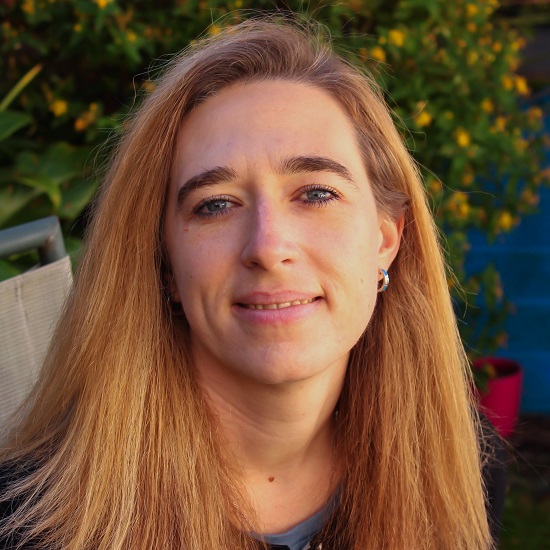
Dr Nathalie MacDermott, King's College London

Dr Nathalie MacDermott, King's College LondonDr MacDermott is an academic clinical lecturer at King’s College London funded by the NIHR. She works clinically as a paediatric infectious diseases doctor, but her research background is in epidemic and pandemic diseases. Her PhD, awarded by Imperial College London, investigated genetic susceptibility to outcome from Ebola virus disease in Sierra Leone. This research also involved determining disease transmission dynamics in rural and urban communities and understanding different outcomes from Ebola virus disease including post-Ebola conditions in Ebola survivors. She is currently investigating post COVID-19 problems (‘Long Covid’) in children utilising multidisciplinary clinical assessment, magnetic resonance imaging, immune phenotyping and, in the longer term, genetic analysis to understand the different phenotypes and pathogeneses of the varied presentations of this condition. Dr MacDermott also suffers from a Post COVID condition following becoming infected while working on the front line. |
|---|---|
| 08:45 - 09:10 |
Immune pathogenesis and therapeutics for COVID.
In March 2020, we were faced with an unknown disease caused by a virus which was spreading at a rapid speed. This talk describes the combined power of clinical findings, immunology research and the UK's swift testing of new drugs during those early months and then years of the pandemic. I will focus on how we used nascent immune understanding to support the key early phase therapeutic trials; and the summarise current understanding of the immune pathogenesis of severe COVID. 
Professor Ling-Pei Ho, MRC Weatherall Institute, University of Oxford

Professor Ling-Pei Ho, MRC Weatherall Institute, University of OxfordProf Ling-Pei Ho is the Professor of Respiratory Immunology at University of Oxford and an NHS Consultant in Respiratory Medicine. Her research programme focuses on the interface between immune mechanisms of lung injury and dysrepair (fibrosis) and development of new medicines. She chairs the NIHR's Respiratory Translational Research Collaboration (R-TRC), a consortium of 10 UK universities which partners the NHS, academic institutions and industry to speed up delivery of new medicines for respiratory diseases. During the COVID-19 pandemic, she led the R-TRC's critical involvement in translating emergent immune understanding of COVID disease to better understanding of clinical disease, setting up and coordinating early phase therapeutic clinical trials, and selection of immunomodulatory drugs for national phase 3 studies. Prof Ho served on the NIHR Urgent Public Health and on the steering and scientific advisory committees for early phase COVID therapeutic trials - AGILE, ACCORD and CATALYST, and on the immunology panel for COVID-19 Therapeutic Advisory Panels’. She was also a front line respiratory physician in the COVID wards at the Oxford University NHS Foundation Trust. |
| 09:10 - 09:35 |
Molnupiravir for the treatment of COVID-19
Molnupiravir (MOV) is an orally administered prodrug of the nucleoside analog, N4-hydroxycytidine (NHC). NHC broadly inhibits the replication of RNA viruses by inducing viral error catastrophe – the introduction of errors into viral genomes beyond a threshold where replication is possible. NHC is active across all known SARS-CoV-2 variants, has a high barrier to the development of drug resistance, is well tolerated, and easy to administer. MOV is currently used for the treatment of COVID-19 in patients with mild to moderate disease who are at risk of disease progression. An overview of its profile and potential for use in other indications will be provided. 
Dr Jay Grobler, Merck

Dr Jay Grobler, MerckJay Grobler, Ph.D. is Associate Vice President, Infectious Disease and Vaccines, at Merck Sharp & Dohme. Dr. Grobler received his Ph.D. in Biochemistry and Molecular Biology from the University of Miami School of Medicine (Miami, FL, USA) and completed post-doctoral training at the National Institutes of Health (Bethesda, MD, USA). Dr. Grobler joined the Antiviral Research group at MSD in 1997. At MSD, he has contributed to the discovery and/or development of several drugs used to treat infectious disease including raltegravir, doravirine, islatravir and molnupiravir. Currently, Dr. Grobler leads drug discovery and early clinical development programs focused on the treatment and prevention of infectious diseases. |
| 09:35 - 10:00 |
Fighting COVID-19 with broadly neutralizing antibodies
Monoclonal antibodies (mAbs) have revolutionized the treatment of several human diseases, including cancer, autoimmunity and inflammatory conditions and represent a new frontier for the treatment of infectious diseases. In the last twenty years, innovative methods have allowed the rapid isolation of antibodies from convalescent subjects, humanized mice or in vitro libraries and have proven that swift isolation of mAbs is a rapid and effective countermeasure to emerging pathogens. During the past two years, an unprecedented wave of monoclonal antibodies has been developed to fight COVID-19. Here, we provide an overview of the preclinical and clinical development of the SARS-CoV-2 broadly neutralizing antibodies including their antiviral and immunological mechanisms of action, and resistance to circulating variants. 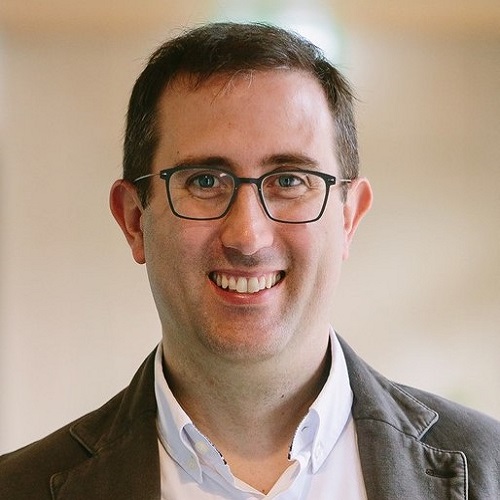
Dr Davide Corti, Vir Biotechnology

Dr Davide Corti, Vir BiotechnologyDr. Davide Corti obtained his bachelor in Pharmaceutical Biotechnology at the University of Milan and his Ph.D. in Immunology at the University of Bern, followed by postdoctoral training in Antonio Lanzavecchia’s laboratory at the Institute for Research in Biomedicine where he further developed and optimized two methods for the isolation of human monoclonal antibodies out of memory B cells and plasma cells (Cellclone technologies). In 2009 he was the Chief Scientific Officer at Humabs, where he leads a research group to isolate monoclonal antibodies against multiple infectious disease viral and bacterial agents. Starting from 2012 he collaborated with MedImmune on the isolation of human antibodies against multiple target pathogens like Rhinovirus, Influenza B, Klebsiella and Staphylococcus. His teams’ efforts to date have generated three clinical stage candidates, MEDI8852 targeting Influenza A, mAb114 targeting Ebola virus and anti-CMV antibodies. Dr. Corti has published more than 130 peer reviewed journal articles and holds 20 patents. Humabs was acquired by Vir Biotechnology in 2017 to become its subsidiary in Bellinzona, Switzerland. Dr. Davide Corti is now Senior Vice President, leading Antibody Research at Vir. |
| 10:00 - 10:25 |
COVID-19 therapeutics: revelations and revolutions
COVID-19 has turbo-charged drug development, achieving in months what had previously taken years. The incredible impact of lightning speed computational biology, genomics, drug development, mega-platform trials and data linkage should revolutionise our expectations for the future. 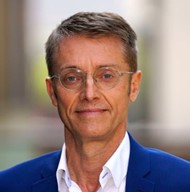
Professor Sir Peter Horby, Nuffield Department of Medicine, University of Oxford

Professor Sir Peter Horby, Nuffield Department of Medicine, University of OxfordPeter trained in medicine at University College London and went on to specialise in emerging and epidemic prone infectious diseases. Over the last 20 years he has led research on a wide range of emerging and epidemic infections, including SARS, avian influenza, Ebola, Lassa fever, plague and COVID-19. He lived and worked in Southeast Asia for 11 years, working initially for the World Health Organisation in Vietnam before establishing a research centre at the National Hospital for Tropical Diseases in Hanoi in 2006. The research centre is still flourishing and in 2016 he was awarded the People’s Health Medal by the Government of Vietnam. Peter returned to the United Kingdom in 2014 to set up an epidemic disease research group at the University of Oxford and is Director of the recently established Pandemic Sciences Centre. He is also Executive Director of the International Severe Acute Respiratory and emerging Infections Consortium (ISARIC), a consortium of 53 international, national and local research networks whose research activities span 134 countries worldwide, and is also the coordinator of the African coaLition for Epidemic Research, Response and Training (ALERRT), a sub-Saharan Africa consortium on clinical research for epidemic-prone infections, with 21 partner institutions and representation across 25 sub-Saharan Africa countries. He is a member of the UK Government Scientific Advisory Group for Emergencies (SAGE) and chairs the New and Emergency Respiratory Virus Threats Advisory Group. Peter co-leads the RECOVERY trial of treatments for COVID-19, which has randomised over 42,000 participants and evaluated 13 drugs. He was knighted for Services to Medical Research in the 2021 Queen’s Birthday honours list. Photo credit to John Cairns. |
Chair
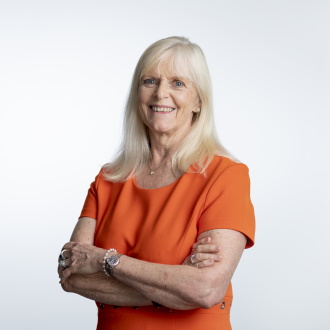
Dr Melanie Lee CBE, LifeArc

Dr Melanie Lee CBE, LifeArc
Dr Melanie Lee CBE, is CEO of LifeArc. Melanie has pursued a 30-year career in healthcare R&D and gained leadership experience both from the biopharmaceutical industry and from the medical research charity sector. Melanie’s previous roles have included Chief Scientific Officer at BTG PLC (most recently) as well as senior positions at GSK, Celltech and UCB. She has previously held Trustee appointments at Cancer Research Technology and Cancer Research UK and currently serves as a Board Trustee at Sanofi and UK Dementia Research Institute.
| 10:50 - 11:10 |
Choosing drugs for UK COVID-19 treatment trials
In 2020, the UK government funded a portfolio of platform trials to develop new treatments for COVID-19. A key feature was the independent prioritization of candidate drugs with central coordination to prevent duplication, accelerating recruitment to deliver definitive trial results. A similar approach could be used for non-communicable diseases where treatment advances have been limited. 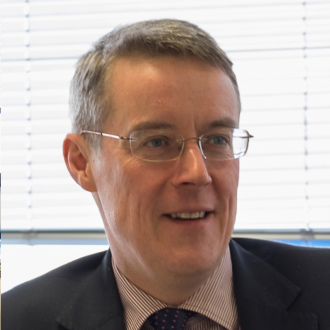
Professor Patrick Chinnery FMedSci, University of Cambridge

Professor Patrick Chinnery FMedSci, University of CambridgePatrick Chinnery is Professor of Neurology and Head of the Department of Clinical Neurosciences at the University of Cambridge and clinical neurologist at Addenbrooke’s Hospital. A Wellcome Trust Principal Research Fellow, his research lab is based in the MRC Mitochondrial Biology Unit. He is known for his expertise in rare inherited diseases that affect the nervous system. His lab has been studying the genetic basis of mitochondrial disorders for over two decades, harnessing the power of whole genome sequencing and developing new treatments through experimental medicine and early phase trials. He jointly chairs the NIHR BioResource for Translational Research in Common and Rare diseases, and is Clinical Director of the Medical Research Council. During the COVID-19 pandemic he established the UK COVID-19 Therapeutics Advisory Panel (UK-CTAP) to independently prioritise candidate treatments for evaluation in the nationally funded clinical trials platforms from phase 1 to phase 3, and was National Core Study lead for Therapeutics. |
|---|---|
| 11:10 - 11:25 |
Siemens/VCUK. Leadership, technology and agile thinking in response to COVID-19
In March 2020, the Ventilator Challenge UK consortium contracted with UK government to urgently manufacture 20,000 ventilators for the NHS. The challenge : to re-purpose an existing technology from Penlon, gain MHRA approval and build multiple factories for sub and final assembly to manufacture mechanical ventilators at scale and save lives. The success of the programme was dependent upon on agile leadership, the removal of the normal barriers to progress and the innovative use of technology. The presentation by Brian Holliday will feature an insight to the digital design of the sub assembly lines for the absorber breather and flow valve components of the ES02 in conjunction with Airbus, the training of volunteer operators through digital tools and an innovative hackathon to resolve a significant manufacturing calibration challenge. 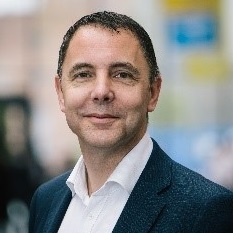
Brian Holliday CEng FIET, Managing Director - Siemens Digital Industries

Brian Holliday CEng FIET, Managing Director - Siemens Digital IndustriesBrian Holliday is a member of the Senior Leadership Team of Siemens plc and Managing Director for Siemens Digital Industries, which serves the manufacturing and infrastructure sectors. He is also Chairman of Siemens Industry Software UK. He holds board memberships for the High Value Manufacturing Catapult and Make UK, the Manufacturers’ Organisation, and has contributed to Parliamentary Select Committees on the topics of Education and Industry 4.0. He is a member of the Royal Society’s Science, Industry and Translation Committee. A Chartered Engineer and Fellow of the Institution of Engineering and Technology, Brian started his career with Texas Instruments and went on to read Computer Systems at Cardiff University before joining Siemens, the global leader in electrification, automation and digitalisation in 1993. He attained his Executive MBA at Manchester Business School in 2000 and in 2014 became a graduate of the CBI’s Executive Leadership Programme. |
| 11:25 - 11:40 |
Machine learning for pandemic response and societal resilience
Machine learning (ML) is increasing its positive impact across society and being effectively used to support COVID-19 response in many ways. We will describe how scientific collaborations are exploring the use of ML for COVID-19 diagnosis, patient triage and pandemic modelling. We will then discuss the opportunities for how ML can be used to help society be more resilient today and in the future. 
Dr Kenji Takeda, Microsoft Research

Dr Kenji Takeda, Microsoft ResearchDr Kenji Takeda is Director of Academic Health and AI Partnerships at Microsoft Research, based in Cambridge, UK. He is working to empower researchers to develop and deploy human-centric AI and machine learning, particularly to transform healthcare by exploiting data in the cloud, empowering those at the frontline of healthcare, and moving towards precision medicine. This includes medical imaging with Project InnerEye and working with the global healthcare data research community. He coordinates Microsoft’s Studies in Pandemic Preparedness collaborative research program that brought together leading researchers from academia and Microsoft to help address the current situation and better prepare for future pandemics. He regularly advises funding agencies and research organisations on innovation and technology strategy, including UK Research & Innovation, Engineering and Physical Sciences Research Council, Science and Technology Funding Council, Medical Research Council, Wellcome Trust and Health Data Research UK. He is a visiting industry fellow at the Alan Turing Institute and visiting fellow at the University of Southampton, UK. He was a member of the Microsoft Global Hackathon 2021 Executive Challenge winning team and Health Data Research UK Team of the Year in 2020. He spent over 20 years in academia as Associate Professor of Aeronautics at the University of Southampton where he developed novel computational and system-wide approaches to tackle fundamental and applied problems in science and engineering. He has extensive experience in cloud and high performance computing, ,aerodynamics, aeroacoustics, and flight simulation. He has received numerous awards, including the inaugural Royal Academy of Engineering Innovation prize, Royal Aeronautical Society Silver Award, and the Royal Academy of Engineering/ExxonMobil Gold medal for excellence in university engineering learning and teaching. He worked for many years as a freelance computer journalist with ZDNet, GameSpot, Computer Gaming World, and PC Pilot. |
| 11:40 - 11:55 |
Sharing data and information on Covid-19 and other emergencies
This presentation is a short overview of the challenges and successes of sharing data and information during the COVID pandemic, and during previous emergencies that I have been involved with, especially pandemics of influenza, Ebola and Zika viruses. The talk has four parts: (1) objectives of data sharing for science and policy; (2) incentives for, and barriers to, data sharing; (3) technical challenges and how to overcome them, commenting selectively on data sources, platforms, quality, analysis, standards, ethics, regulations and new technologies; and (4), in view of (1-3), some proposals for data sharing in anticipation of future emergences. 
Professor Christopher Dye FMedSci FRS, University of Oxford

Professor Christopher Dye FMedSci FRS, University of OxfordChris Dye trained as a biologist and ecologist (York) but postgraduate research on mosquitoes (Oxford) led to a career in epidemiology and public health, principally at Imperial College, the London School of Hygiene and Tropical Medicine and the World Health Organization. As WHO Director of Strategy 2014-18, he served as science advisor to the Director General, oversaw the production and dissemination of health information by WHO press and libraries, and coordinated WHO's work on health and the Sustainable Development Goals. He is now Professor of Epidemiology at Oxford University. With many collaborators, he is currently investigating the epidemiology and control of COVID-19 in Brazil, China and Europe, and helping to develop policies for data management in emergencies. His most recent book is "The Great Health Dilemma: Is Prevention Better than Cure?" (OUP 2021). |
Chair
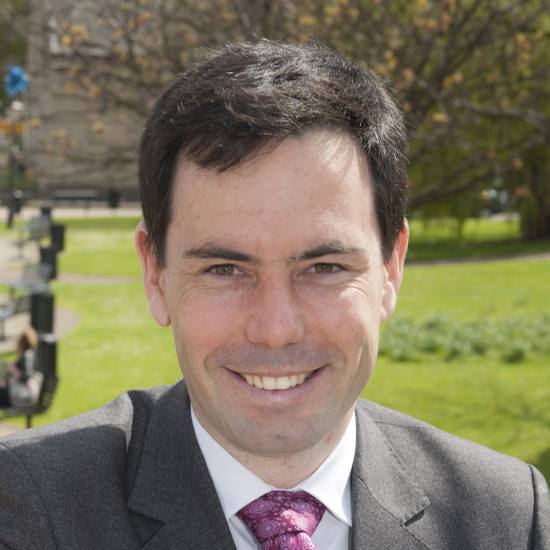
Steve Bates, Chief Executive Officer, Bioindustry Association

Steve Bates, Chief Executive Officer, Bioindustry Association
Since his appointment as Chief Executive of the Bioindustry Association in 2012, Steve Bates has led major BIA campaigns for, amongst other things, improved access to finance, the refilling of the Biomedical Catalyst, anti-microbial resistance and the opportunity the sector presents to generalist long term investors.
Steve champions the adaptive pathway approach to the licensing of new drugs, the need for Early Access and is particularly proud of the working relationship the BIA has established with the UK’s leading medical research charities.
A founder member of United Life Sciences, a strategic partnership representing over 1000 life science and healthcare member companies across the UK and internationally, Steve attends the UK’s Ministerial Industry Strategy Group, and sits on The Royal Society's Science, Industry & Translation Committee.
Beyond the UK Steve is a member of EuropaBio’s Board and its National Association Council and is a founder member of the International Confederation of Biotech Associations.
An expert and regular commentator on the sector in the media and at industry-leading conferences Steve has worked both in biotech (as Senior Director at Genzyme UK and Ireland) and at the highest levels of UK government (as Special Advisor to John Reid, MP, during his time in Tony Blair’s government) for over 15 years.
| 13:30 - 13:35 |
My role as an Apprentice during the manufacture of the Oxford COVID-19 vaccine.
In this presentation I will talk about my role as an apprentice working at the Clinical BioManufacturing Facility (University of Oxford) during the manufacture of the first COVID-19 vaccine to undergo clinical trials in the UK. I will discuss why I chose to undertake an apprenticeship over the conventional university route to study science and I will briefly outline my achievements so far 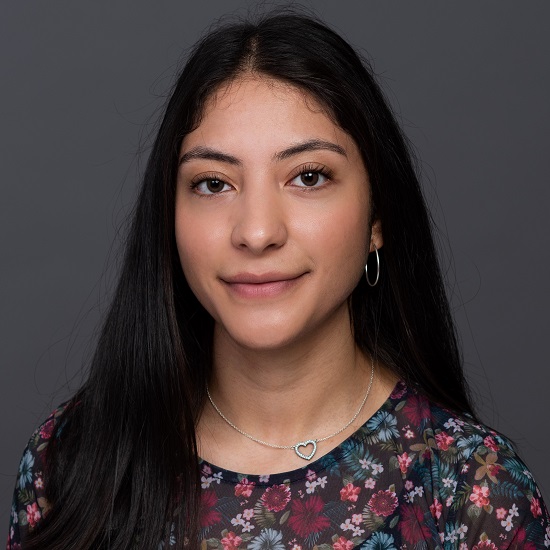
Emilia Reyes Pabon

Emilia Reyes PabonEmilia Reyes Pabon is an Apprentice Technician Scientist at the Clinical BioManufacturing Facility, University of Oxford. She joined in September 2018 as an Apprentice Operations Technician, completing a Level 3 Apprenticeship with CSR Scientific Training. Between March and April 2020, she was vital in supporting the manufacture of ChAdOx1 nCov-19 vaccine. She was tasked with core responsibilities vital to the operation of the cleanrooms, including sterilisation of equipment, restocking supplies, cleanroom maintenance and environmental monitoring. In August 2020, she obtained a distinction in her Level 3 Apprenticeship, and started a Level 5 Technician Scientist Apprenticeship, whilst completing a FdSc in Applied Bioscience with Focus on ATMPs with the University of Kent. |
|---|---|
| 13:35 - 13:40 |
Antibodies and apprentices: the experience of a laboratory scientist apprentice in AstraZeneca’s COVID-19 response
The urgency generated by the COVID-19 pandemic challenged scientists, including apprentices, to adopt new and more efficient ways of working to support accelerated research and development (R&D) timelines. Apprentices played important roles within AstraZeneca, and at a national level, in the response to the pandemic. Here I describe some of the challenges I faced, and opportunities that presented themselves, as a laboratory scientist apprentice in an AstraZeneca R&D lab. 
Adam Powell, AstraZeneca

Adam Powell, AstraZenecaAdam Powell is a laboratory scientist apprentice in the department of Biopharmaceutical Development at AstraZeneca. He joined in September 2018 and is now working towards his Level 6 Laboratory Scientist Apprenticeship and a BSc in Applied Bioscience with the University of Kent. He received the Higher Apprentice of the Year (2020) award at the School Leaver Awards for his impact at AstraZeneca and for his strong advocacy for apprenticeships. |
| 13:40 - 13:45 |
The experience of a Digital Degree Apprentice
I started at AstraZeneca in 2016 as part of the IT Degree Apprenticeship Scheme and specialised in Data Analytics during my second year. I spent my scheme rotating around various IT functions but also spent some time in Global Supply Chain to understand how digital supports the wider organisation. I graduated in 2020 and secured a permanent role in Enterprise Technology Services within IT as a Customer Engagement Analyst and chose to continue on to complete the MSc Digital & Technology Solutions, Data Analytics. 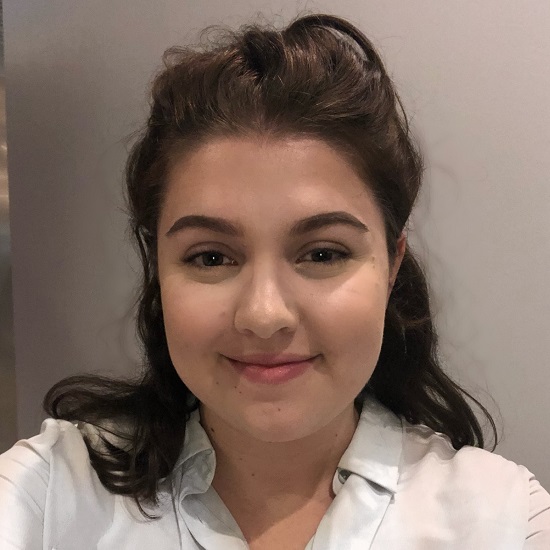
Becca Goodwin

Becca GoodwinI started at AstraZeneca in 2016 as part of the IT Degree Apprenticeship Scheme and specialised in Data Analytics during my second year. I spent my scheme rotating around various IT functions but also spent some time in Global Supply Chain to understand how digital supports the wider organisation. I graduated in 2020 and secured a permanent role in Enterprise Technology Services within IT as a Customer Engagement Analyst and chose to continue on to complete the MSc Digital & Technology Solutions, Data Analytics. |
| 13:45 - 13:50 |
A Student’s role in delivering the UK’s mass testing COVID response
The COVID-19 pandemic meant that many university practical research projects within a laboratory setting had to be cancelled. Yet, the advent of mass testing across the UK presented students with an opportunity to develop those technical skills as well as gain an insight into the public health sector all whilst dressed in full PPE. Olivia Crossley describes her role within the Asymptomatic Test Centre at the University of Birmingham and how COVID impacted her career expectations. 
Olivia Crossley, University of Sheffield

Olivia Crossley, University of SheffieldOlivia Crossley is a Postgraduate MSc Advanced Cell and Gene Therapies Student at the University of Sheffield. Whilst completing her undergraduate degree in Biochemistry, she took the role of Processing Operative and Testing Assistant at the University of Birmingham’s Asymptomatic testing site. The site was established to make sure staff and students accessing the campus were doing so safely as well as making sure students tested negative before returning home to their families. Her role encompassed overseeing swabbing procedures, using the swab to perform a rapid antigen diagnostic test, and maintaining a sterile working environment within the facility. She is currently undertaking her MSc Research project at the Sheffield Institute for Translation Neuroscience (SITraN) investigating protein toxicity and DNA damage in C9ALS/FTD. |
| 13:50 - 14:00 | Q&A panel |
| 14:00 - 14:30 |
Lessons learned from the Pandemic for science communications in an emergency
The relationship between scientists and the media during the pandemic is widely acknowledged as one of the things that worked well. The public gained huge insights and understanding of the virus by being able to hear from so many great scientists. So what are the main lessons we can take from the way scientists communicated in this pandemic? What aspects of communication do we need to celebrate and bottle for the next national emergency. Fiona Fox and her team at the SMC were on the front line between scientists and the media for 2 years of the pandemic. Here she will present her teams views on the most important lessons for science communication in a crisis. 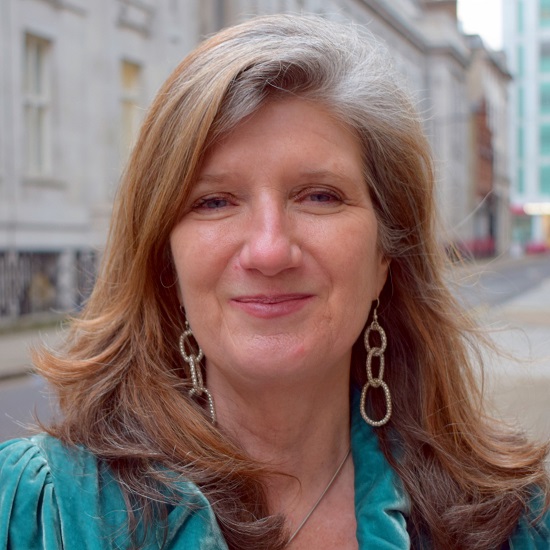
Fiona Fox OBE FMedSci, Science Media Centre

Fiona Fox OBE FMedSci, Science Media CentreFiona Fox, the chief executive of the Science Media Centre, has a degree in journalism and many years of experience working in media relations for high profile national organisations. Her career includes stints working for, amongst others, the Equal Opportunities Committee, the National Council for One Parent Families, and CAFOD (a leading aid agency). The founding director of the Science Media Centre when it was established in 2002, under Fiona’s leadership the Centre has become an indispensable resource for science journalists. The Centre provides scientific context and comment from some of the UK’s top scientists for many major news stories thanks to the Centre’s media database, which has over 2300 such experts on it. Fiona is a regular commentator on science in the media and was the only representative from the scientific community invited to give evidence at the Levenson Inquiry into press standards in the UK in 2012. She is an outspoken champion for openness in science and, as part of this, led a successful campaign in 2017 for changes to the British Government’s purdah rules, ensuring government funded scientists are free to speak out during election periods. Due to be published in 2022, her book Beyond the Hype: The inside story of science's biggest media controversies is part memoir of Fiona’s time at the SMC, part manifesto for change – particularly the urgent need to separate science communication from government communication. Fiona has received many accolades for her services to science, including an OBE, honorary fellowships of the Academy of Medical Sciences, the Royal Society of Biology and the British Pharmacology Society, and an honorary doctorate from the University of Bristol. She has received awards from the European College of Neuropsychopharmacology and the British Neuroscience Association, and a special award from Understanding Animal Research for promoting openness in animal research. |
Chair

Professor Charles Bangham FMedSci FRS, Co-Director of the Institute of Infection, Imperial College London

Professor Charles Bangham FMedSci FRS, Co-Director of the Institute of Infection, Imperial College London
Charles Bangham qualified in medical sciences at the University of Cambridge and in clinical medicine at the University of Oxford. He worked as a hospital physician for three years, followed by a PhD in viral immunology at the MRC National Institute for Medical Research and the University of Oxford. In 1995 he was appointed to the Chair of Immunology in Imperial College. He is founder and Co-Director of the Institute of Infection in Imperial College. His research is on the immunology and virology of persistent viral infections, especially the human retrovirus HTLV-1. Charles is a Wellcome Trust Investigator, Fellow of the Academy of Medical Sciences, and Fellow of the Royal Society.
| 15:00 - 15:30 |
Investment in the UK Life sciences
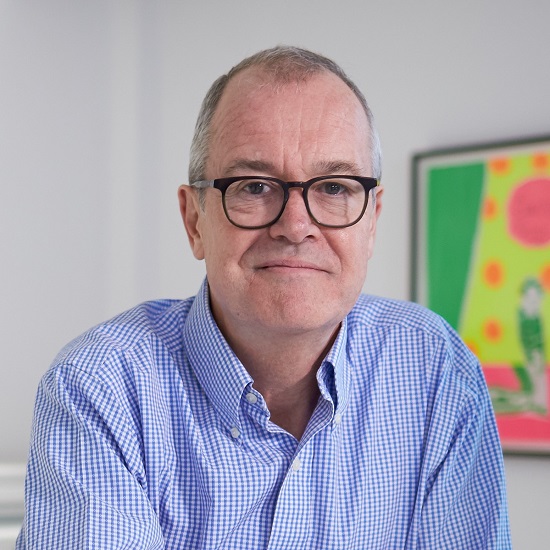
Sir Patrick Vallance FMedSci FRS, Government Chief Scientific Adviser and Head of Government Science and Engineering Profession, UK Government

Sir Patrick Vallance FMedSci FRS, Government Chief Scientific Adviser and Head of Government Science and Engineering Profession, UK GovernmentSir Patrick Vallance is the UK Government Chief Scientific Adviser, National Technology Adviser and Head of the Government Science and Engineering profession. Previously, Patrick worked at GSK where he started in 2006 as Head of Drug Discovery, before becoming Senior Vice President, Medicines Discovery and Development and subsequently President, R&D at GlaxoSmithKline until 2017. Prior to this, Patrick was a clinical academic, Professor of Medicine and led the Division of Medicine at UCL. He has over 20 years’ experience of basic and clinical research. His personal research was in the area of diseases of blood vessels and endothelial biology. |
|---|---|
| 15:30 - 15:35 |
Closing remarks

Professor Dame Linda Partridge FMedSci FRS, Director, Institute of Healthy Ageing, University College London

Professor Dame Linda Partridge FMedSci FRS, Director, Institute of Healthy Ageing, University College LondonLinda Partridge works on the biology of ageing. Her research is directed to understanding the mechanisms by which healthy lifespan can be extended in laboratory model organisms and humans. Her work has focused in particular on the role of nutrient-sensing pathways, such as the insulin/insulin-like growth factor signalling pathway, and on the role of diet. She is the recipient of numerous awards, including the Royal Society's Croonian Prize Lecture, and was honoured with a DBE for Services to Science in 2009. She is a Fellow of the Royal Society, the Academy of Medical Sciences and a foreign member of the American Academy of Arts and Sciences. She is Director of the Institute of Healthy Ageing at UCL and the founding director of the Max Planck Institute for Biology of Ageing in Cologne, Germany. |
